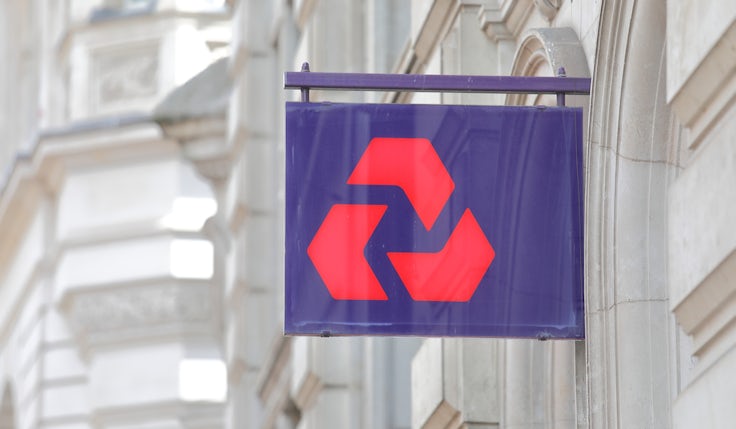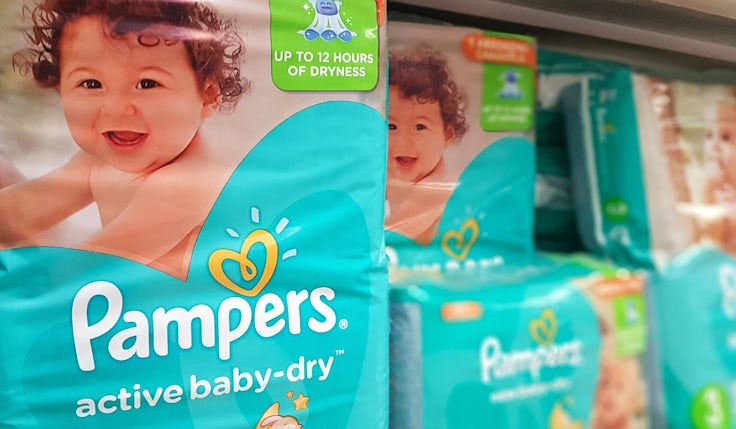2023 marketing year in review: It’s been a bad year for…
From the purpose backlash and a crackdown on advertising vices to the decline of the meat-free category, 2023 has not been a good year for everyone in the marketing world.
 Force-fitting purpose
Force-fitting purpose
They say that what goes up must come down – and while it is still too early to say that purpose has had its moment in the sun – it’s undeniably in the descendency.
Purpose has long been a controversial idea but until 2023 it always had one fierce defender in Unilever, arguably the company that did the most to put purpose on the map to begin with. But with CEO Alan Jope departing the business in the summer (seen by some investors to put purpose ahead of growth) to be replaced by Hein Schumacher, there has been a distinct cooling at Unilever towards purpose.
Schumacher outlined his plans for the company in November and declared: “We will not force fit [purpose] across the entire portfolio, for some brands it simply won’t be relevant and that’s okay.” It was a dramatic retreat from the business – albeit one that was delivered while still praising the impact of purpose on certain brands like Dove.
Even core proponents of brand purpose, such as Thomas Kolster, aka Mr Goodvertising, pulled back on purpose in 2023. “The space just became too crowded,” he told us in our wide-ranging look on where purpose is headed. “If you look at some categories, like chocolate, the number of purpose statements is ridiculous. And a lot of it is nonsense.”
Purpose, though, is more than just attributing a social conscience to a brand. It can be about sustainability too. And 2023 saw more brands seemingly retreating into their shells when speaking about climate issues. Greenhushing, the act of brands keeping quiet about sustainability work for fear of being accused of greenwashing or because they’re struggling to hit targets they’ve set for themselves, became a hot-button issue.
At the Festival of Marketing, Primark’s chief customer officer Michelle McEttrick warned of the increased attention on greenwashing leading to greenhushing as having an unintended side effect of harming sustainability efforts across the business world. “Not only are brands who are greenhushing losing the opportunity to connect with and widen their customer base with customers who are more ethically and sustainability driven but it risks real progress across the industry,” she said.
A similar message was put to Marketing Week by Rachel Kerrone from Starling Bank. She spoke of creating an environment that allows brands to speak about green efforts without being concerned about greenwashing accusations, adding this “comes from creating a culture of clarity and transparency on sustainability initiatives”. JS
Plant-based meat industry
Just a few years ago, plant-based meat was a booming category. Brands rushed to bring home the bacon, and grab a slice of the market for themselves, as veganism, vegetarianism and flexitarianism gained pace.
From meat-free startups to established meat producers creating plant-based variants, there was a seemingly endless slate of meat alternatives being brought to market.
All booms must eventually slow, and 2023 became something of a year of reckoning for the category.
Vegan burger brand Beyond Meat reported in August that its sales had fallen by almost a third year over year, and the producer has continued to report sales declines. Meanwhile, British plant-based brand Meatless Farm had to be bought out of administration after it reported it was preparing for bankruptcy back in June.
Elsewhere, sausage brand Heck reduced its vegan range, while FMCG giant Nestle withdrew two of its plant-based brands from the UK entirely.
From 2018 to 2021, the UK meat substitute market grew by over 70%, from £337m in 2018 to £587m in 2021, according to figures from Mintel. In 2022, this market declined by 6.4%. Meanwhile, in January, aka Veganuary, sales of chilled meat alternatives fell 16.8% compared with the same period in 2022 and frozen meat alternatives declined by 13.5%, according to figures from NIQ.
The market entered a survival of the fittest era in 2023 with some brands finding they no longer have place. Consumers are becoming increasingly discerning about the products they buy, particularly when it comes to taste and value for money. While consumers were once hungry for any alternative, they are now paying closer attention to a product’s health credentials and are looking for better quality alternatives.
In a cost of living crisis, plant-based meat alternatives can seem an expensive option, with some consumers also reverting to other, cheaper forms of protein like chickpeas or lentils. NC
The metaverse and Web3

2022 was the year of the metaverse. Brands including BMW and Vogue launched branded hubs in metaverse platforms like Roblox, and Meta heavily promoted its Horizons platform throughout the year to enterprise and personal consumers.
Over the course of the year the marketing industry staked its claim in the space as the sophistication of experiences and revenue generation opportunities developed. The metaverse – and the NFTs and other Web3 tech that underpinned the various platforms – seemed poised to be a huge new channel for brands and marketers.
Almost on the stroke of midnight on 1 January, however, the industry turned its attention to the next big thing – artificial intelligence.
Generative AI of the sort offered by platforms like OpenAI promised wide-ranging changes to the creative processes at agencies, disruption of online search, and a sea change in how marketers approached data.
In the noise around AI, metaverse investment fell off the agenda. Funding to startups in the metaverse space fell dramatically – a decrease of 77% from the final quarter of 2021 to the first quarter of 2023 according to Crunchbase data. It is estimated that 95% of NFT collections have a market cap of zero – meaning that the tokens themselves are worthless.
There has been a corresponding lack of big brand launches in the metaverse over the course of 2023. That, however, may not be a bad thing in the long run.
The core underlying consumer behaviours that kicked off the craze have continued, however: this bad year for the metaverse and Web3 in general could allow marketers to do rightsized experiments in those virtual works, rather than rushing in without a strategy. CS
Brands speaking out

It is easy to be cynical about brands taking a stand on a political or social issue. Sometimes quite rightly. Terms like greenwashing and pinkwashing didn’t appear out of thin air, after all, and those closest to these causes can sniff out a disingenuous attempt to curry favour from a mile away. But, equally, it’s important to remember that many brands are just trying to do what they see to be the right thing. They weren’t rewarded for it in 2023 though.
This has been a dreadful year for brands standing up for what they claim to believe in – and worse still for those who fail to effectively handle any fallout. AB InBev, the owner of Bud Light, is the prime example. It faced a backlash it was wholly unprepared for when it partnered with transgender influencer Dylan Mulvaney for a post she promoted on her social media channels. Innocuous enough, it seemed, but the backlash was fierce and immediate with boycotts quickly gathering pace from right-wing consumers and AB InBev saw volumes decline by 14% in the aftermath.
AB InBev, it has to be said, did a pretty bad job of handling the situation. Immediately distancing itself from Mulvaney in a way that didn’t placate its critics – and only served to anger the LGBTQ+ audience it was courting. Bud Light will be fine, of course, as Marketing Week columnist Mark Ritson said. Its most recent campaign, after all, proved quite popular and returned the brand to safer territory: sports.
While AB InBev showcased how not to handle a controversy more praise should be reserved for Wickes which faced criticism in June when its CEO told LGTBQ+ news outlet Pink News that trans critical shoppers “are not welcome in our stores”. Another boycott followed but the brand stuck to its guns and refused to back down from its comments albeit it did go somewhat dark as the scandal blew over. Costa Coffee, too, stood by its beliefs when being attacked for a mural on the outside of its branches that showed a cartoon of a transgender man with a visible mastectomy scar.
More worrisome, however, is that LGBTQ+ advertising advocacy group Outvertising claims it is seeing a real “apprehension” from brands to continue championing LGBTQ+ causes in fear of backlash. As Ali Hanan, founder of inclusion consultancy Creative Equals, puts it: “Brands have to know who their future market is.” JS
Adblocking and wasted spend
 Adblocking is a perennial issue for the marketing industry. Just when the number of people who employ adblocking tools appears to reach equilibrium, changes in the digital advertising ecosystem cause it to rear its head once again.
Adblocking is a perennial issue for the marketing industry. Just when the number of people who employ adblocking tools appears to reach equilibrium, changes in the digital advertising ecosystem cause it to rear its head once again.
In 2023 the biggest change was undoubtedly Google’s move to prevent adblocking on YouTube. In June the world’s largest digital video platform trialled messaging a small proportion of adblock users, urging them to either disable the tools or sign up for the ad-free YouTube Premium.
That effort was then expanded to a larger number of users in early November, showing the extent to which the advertising revenue-dependent service is concerned about the adoption of adblocking technology. Next year Google is set to adopt the Manifest V3 standard, which will further limit the ability of ad blockers – in theory.
Those moves have potentially misfired. In addition to the reputational damage done to the service by irate users sharing stories of new unskippable ad formats and larger ad loads, its changes also potentially violate privacy laws the European Union – a charge YouTube denies.
The woes of digital advertising in 2023 did not end with ad blocking. Despite widespread awareness of wasted ad spend, a number of studies over the course of the year have demonstrated the extent to which it remains an issue. A study from CreativeX, for example, found that brands are expected to waste over £57.7bn ($73bn) in spend on “digitally suboptimal” or otherwise unsafe digital platforms in Q4 2023.
Researchers at Juniper Research similarly found that 22% of all online ad spend is set to be lost due to ad fraud in 2023. It also found that the figure is even higher on mobile, representing about 30% of spend.
Whether it is platforms not receiving ad spend as a result of ad blocking, or the ongoing issue of ad fraud and wastage, 2023 proved that wasted digital spend is simply the cost of doing business online for many marketers. CS
Advertising vices
 As crackdowns go, the Advertising Standards Authority (ASA) has made a pretty bold effort to clamp down on rule-breaking gambling and vaping brands this year.
As crackdowns go, the Advertising Standards Authority (ASA) has made a pretty bold effort to clamp down on rule-breaking gambling and vaping brands this year.
This isn’t anything new. Guidelines have been in place for years to limit the targeting of under-18s. Last year the ASA took a hard line on betting brands using popular sports figures who appeal to children in their advertising and marketing. But 2023 has been the year the vices crackdown intensified. It’s not just gambling facing new limits, but vaping has come under fire from the ASA, the government and even BAT (British American Tobacco) of all organisations urging changes to how vaping brands market themselves.
In November, BAT – the UK’s largest smoking and vaping manufacturer – launched a campaign pleading for more regulation. “We believe that underage users should never vape, so we want confectionery, dessert and soft drink flavours to be banned and the introduction of a new regime for how and where vapes are sold,” it said.
The government’s consultation on the Tobacco and Vapes Bill, which would stop children who turn 14 in 2023 from ever legally buying cigarettes in England, concluded yesterday (6 December) as the proposal takes another step to become law. Others, including Labour’s shadow minister for children and early years, want to ban vapes that appeal to children.
How long will UK consumers, and their children, be able to buy strawberry, bubblegum or cherry-flavoured vapes? It’s unclear, but the pressure is mounting on vice industries to do a better job. MI
 Force-fitting purpose
Force-fitting purpose







Comments